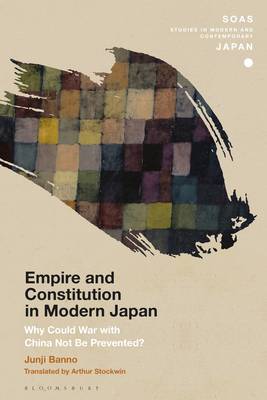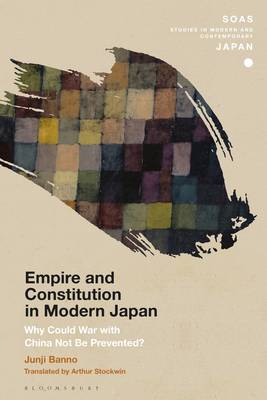
- Afhalen na 1 uur in een winkel met voorraad
- Gratis thuislevering in België vanaf € 30
- Ruim aanbod met 7 miljoen producten
- Afhalen na 1 uur in een winkel met voorraad
- Gratis thuislevering in België vanaf € 30
- Ruim aanbod met 7 miljoen producten
Zoeken
€ 67,95
+ 135 punten
Omschrijving
Since the beginning of the Meiji period when Japan evolved into a modern and powerful nation-state, ideas of empire and constitution imbued Japanese rule and progress. In Empire and Constitution in Modern Japan, Junji Banno expertly analyses how these conflicting concepts operated together in Japan from 1868 until 1937.
By 'empire', Banno means the Japanese impetus to create its own empire; by 'constitution', he identifies Japanese efforts to create a constitutional government. In this book, Banno discusses the complicated relationship between these two concepts, ranging from incompatibility in some periods to symbiosis in others. Furthermore, understanding the complex and competing nature of these ideals, he persuasively reasons, is key to our understanding of why Japan and China went to war in 1937, leading to Pearl Harbor just four years later. Translated by eminent scholar Arthur Stockwin, Banno's highly accessible account of the dynamics of pre-war Japanese political history provides an engaging survey of imperialism and constitutionalism in modern Japan. It will be of vital importance to all scholars of modern Japanese history.Specificaties
Betrokkenen
- Auteur(s):
- Vertaler(s):
- Uitgeverij:
Inhoud
- Aantal bladzijden:
- 186
- Taal:
- Engels
- Reeks:
Eigenschappen
- Productcode (EAN):
- 9781350240407
- Verschijningsdatum:
- 29/12/2022
- Uitvoering:
- Paperback
- Formaat:
- Trade paperback (VS)
- Afmetingen:
- 156 mm x 234 mm
- Gewicht:
- 267 g

Alleen bij Standaard Boekhandel
+ 135 punten op je klantenkaart van Standaard Boekhandel
Beoordelingen
We publiceren alleen reviews die voldoen aan de voorwaarden voor reviews. Bekijk onze voorwaarden voor reviews.











